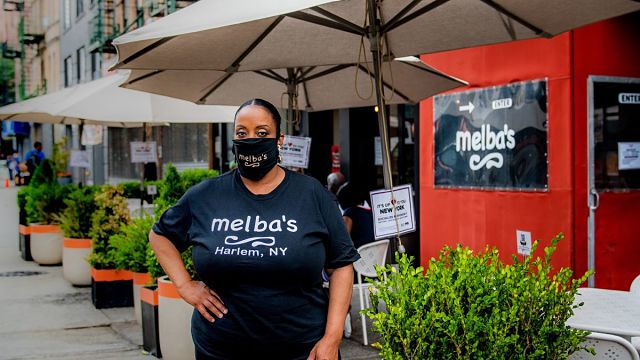 As long time residents of Harlem where we've run Tadias since 2004, it's sad to see the economic toll the pandemic has taken on local small businesses in the past few months. Below is a recent CNN report highlighting how the neighborhood is fighting to save its remaining Black-owned businesses. (CNN)
As long time residents of Harlem where we've run Tadias since 2004, it's sad to see the economic toll the pandemic has taken on local small businesses in the past few months. Below is a recent CNN report highlighting how the neighborhood is fighting to save its remaining Black-owned businesses. (CNN)
CNN Business
New York — Black-owned businesses in Harlem, the New York neighborhood synonymous with Black culture and history, were scarce even before the Covid-19 pandemic forced them to shutter indefinitely.
Now the area’s business leaders, who have been battling gentrification for years, fear the community may never be the same after the health and economic crises crushed the few Black businesses that remain.
“This could definitely be the Alamo for Harlem,” restaurateur and New York Hospitality Alliance President Melba Wilson told CNN Business over the weekend. Wilson, whose restaurant, Melba’s, opened in Harlem 16 years ago, has seen the number of Black-owned businesses in the neighborhood shrink over the years.
‘If the place goes dark, let me know’
Before the pandemic, Black people made up about 22% of New York City’s population, but only 2% of its 230,000 small business owners, according to the city’s Department of Small Business Services. The local economic development group Harlem Park to Park said its Black-owned membership dropped from 80% in 2011 to 65% in early 2020.
The group’s Executive Director Nikoa Evans, said the worst is still to come.
Coronavirus shutdowns have prevented business owners in Harlem and beyond from earning enough to pay their rent since March. A state moratorium on evictions is set to end on October 31. Evans said she’s heard from landlords who’ve been contacted by large corporations looking for bargains on commercial properties.
“Many of the big corporate chains are now contacting landlords and saying, ‘If the place goes dark, let me know,’” Evans told CNN Business on Monday. “It is absolutely a scenario not just in Harlem, but other ‘Harlems’ around the country.”
Evans expects the neighborhood’s “legacy brands,” like Sylvia’s soul food restaurant and the celebrity-owned Red Rooster, to survive the looming corporate bargain sale, but said most small businesses won’t be able to pay months of back-rent when the bill comes due.
The city recently unveiled its Black Entrepreneurs NYC program to help address the lack of Black-owned businesses. Big firms like Ernst & Young and Goldman Sachs have signed on to help aspiring Black entrepreneurs with free consulting and access to financing.
But for historically Black neighborhoods like Harlem, it may be too late to save businesses that were already struggling before the devastating punch of coronavirus.
Read more and watch the video at CNN.com »
—
Related:
Marcus Samuelsson is Re-Building Communities in Harlem and Beyond
Join the conversation on Twitter and Facebook.

























